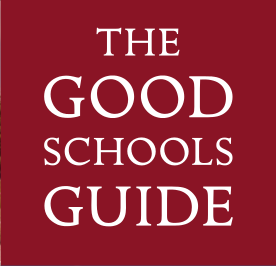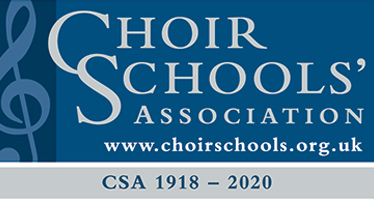Measuring Children
The Head, Mrs Salmond Smith, writes about how the Pre-Senior Baccalaureate (PSB) helped pupils cope during Lockdown.
 The COVID-19 pandemic wreaked havoc with examinations worldwide in 2020, and we are still uncertain about what will happen in 2021. As a school, we managed to successfully navigate our way through exams for our Year 8 pupils; tests were undertaken and invigilated at home. Rather than enjoy the pomp and ceremony of accepting their certificates at the front of Chichester Cathedral, I delivered them to pupils at home, socially-distanced of course, in order to congratulate them in person. We did not, however, formally test the rest of the school. They don't seem to have suffered as a result, but what could it mean for their future? The news is full of reports that say pupils will suffer for years because of the education missed during the pandemic, but is this true for everyone?
The COVID-19 pandemic wreaked havoc with examinations worldwide in 2020, and we are still uncertain about what will happen in 2021. As a school, we managed to successfully navigate our way through exams for our Year 8 pupils; tests were undertaken and invigilated at home. Rather than enjoy the pomp and ceremony of accepting their certificates at the front of Chichester Cathedral, I delivered them to pupils at home, socially-distanced of course, in order to congratulate them in person. We did not, however, formally test the rest of the school. They don't seem to have suffered as a result, but what could it mean for their future? The news is full of reports that say pupils will suffer for years because of the education missed during the pandemic, but is this true for everyone?
Lockdown was an excellent opportunity for PSB schools to use the core skills to support remote learning: Independence, Collaboration, Leadership, Communicating, Thinking and Learning, Reviewing and Improving. Our pupils adapted to learning through Microsoft Teams almost seamlessly in our iPad year groups (Years 6-8) and quickly with support in Years 3-5. Our EYFS and Pre-Prep pupils also work towards the PSB core skills, and this was done via Tapestry.
The PSB is an assessment model that has at its heart the development of the values, skills, attitudes and behaviours required for children to succeed and flourish in an ever changing world.
-https://www.psbacc.org/
The exams we take in school are all good practice for the numerous assessments they will undertake when they do their GCSEs, AS Levels, A Levels, Undergraduate Degrees, Postgraduate Degrees and Professional Qualifications. Whether they, or we, like it or not, our pupils are likely to be spending a lot of time taking exams over the next decade of their lives. Yes, that's right, we give them exams to prepare them for more exams. That’s how our society measures people, which is why the summer GCSE and 'A' Level algorythm debacle caused such chaos.
By the time our pupils get to Year 7 or Year 8 they are very good at taking exams. They are accomplished at reading the question thoroughly, meticulously backing up their answers with examples from the text. They then re-read their answers, perhaps making minor changes, or using remaining time at the end to make sure they have written enough detail to get full marks for that final question. They check spelling, grammar and punctuation, and sometimes find an appropriate point to insert one of their favourite mots du jour (‘mellifluous’ is a current trend) or add some interesting punctuation in order to show that they can.
Many of them are very good at creative writing, comprehension, poetry, algebra, predicting the outcome of an experiment or articulating an opinion about a philosophical concept. Exams do not necessarily tell us what they are and aren’t good at in terms of knowledge – they tell us something far more crucial: That’s right, our education system exists to examine pupils on their exam technique.
We seem to be harbouring something of a national obsession with measuring academic achievement in the UK. We think that an ‘A’ represents achievement and an ‘F’ represents failure. A child who excels in the classroom is considered ‘academic’ or ‘hard-working’, whereas a child who is captain of the Rugby team, Grade VI trumpet or a whizz in the kitchen is thought of as ‘gifted’, as though it required much less hard work to get there.
One of the great privileges of working in an independent Preparatory School is that academia is celebrated with the same gusto as sporting, musical, dramatic and artistic success. The wider curriculum is not seen as second best - far from it - and pupils feel their achievements are celebrated no matter what they are. Schools like that manage to be academic as a by-product of a well-rounded education, because this broad curriculum aids learning and motivation across the whole timetable. Rather ironically, the more a school concentrates solely on academic achievement the more the highest marks may elude them, as the children wilt with boredom whilst their motivation wanes. We could be a hothouse and only train children for academic success, but where would this leave them as adults?
 The PSB exists to challenge this. The best schools instil a sense of confidence in their children to try their best in everything they do; the very best schools measure this attitude and value it above all else. Motivation and effort lead to achievement, so these are the attributes we must encourage. The best schools give the elephant and the goldfish the opportunity to have a go at climbing the tree, and the tools to help them along the way. The best schools allow the monkey, who knows he or she can climb the tree perfectly well, the opportunity to try something more challenging instead. Children are more likely to go into an exam or assessment confidently if they know that the end result is only one of our wide range of measuring tools. And yes, in the meantime we will continue to use the PSB to measure academic progress as well as all the other achievements that are more difficult to quantify.
The PSB exists to challenge this. The best schools instil a sense of confidence in their children to try their best in everything they do; the very best schools measure this attitude and value it above all else. Motivation and effort lead to achievement, so these are the attributes we must encourage. The best schools give the elephant and the goldfish the opportunity to have a go at climbing the tree, and the tools to help them along the way. The best schools allow the monkey, who knows he or she can climb the tree perfectly well, the opportunity to try something more challenging instead. Children are more likely to go into an exam or assessment confidently if they know that the end result is only one of our wide range of measuring tools. And yes, in the meantime we will continue to use the PSB to measure academic progress as well as all the other achievements that are more difficult to quantify.
What did Lockdown do for the pupils of PSB schools? It gave them the perfect opportunity to concentrate on developing their core skills - precisely the ones they will need as adults.
A programme of study for children that aims to prepare them for the challenges of life as young adults in senior schools academically, personally, socially, culturally and spiritually. It does so by actively developing and tracking knowledge, skills and attitudes.
-https://www.psbacc.org/





